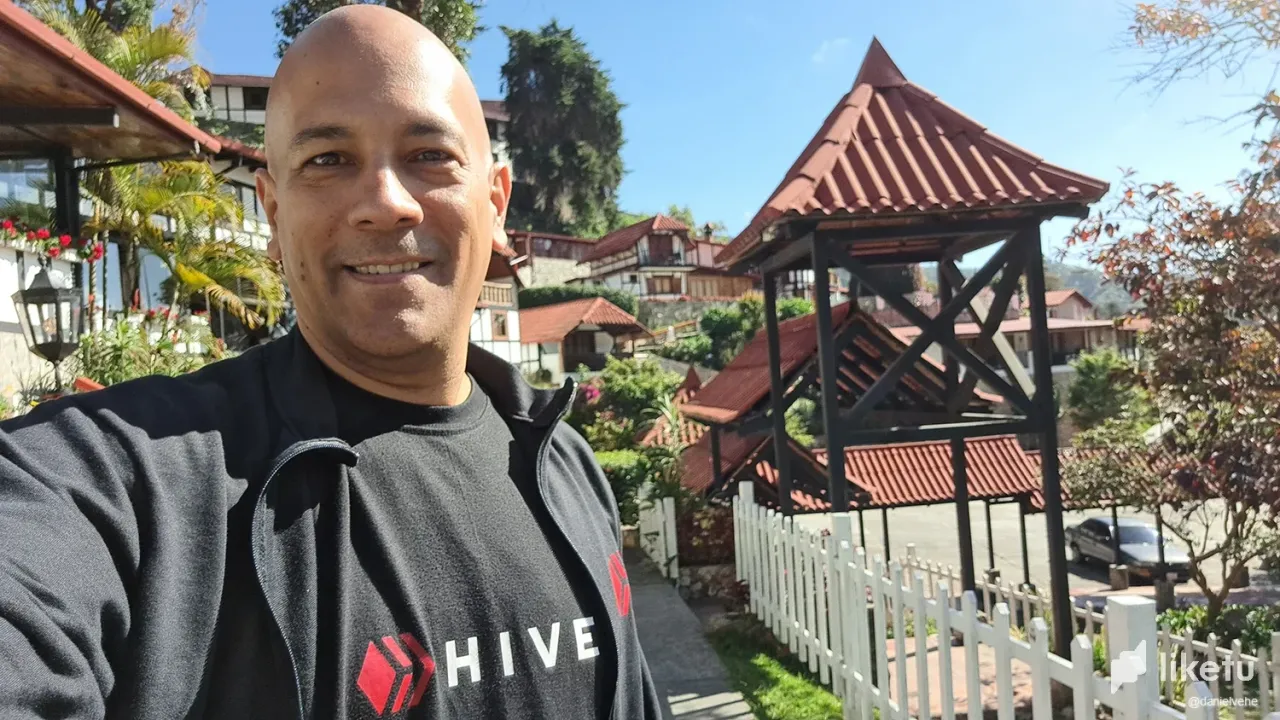


It's adoption work for Hive has always had several challenges. Our experience at @rutablockchain dates back to 2017. While other projects focused on curation, we were the first to work on adoption.
This has left us with a lot of information and what it has taught us the most is patience. One of the most frequent symptoms of working on adoption for this kind of technology is frustration, due to the mania of comparing ourselves with other platforms. There comes a point that you no longer get stressed if someone decides to make their presentation or continue publishing after making it. You've even seen cases of people leaving and coming back years later.
Adoption at Hive can be complex, perhaps trumped by the retention issue. I've been pondering this for years; I've even written many thoughts, but it's always useful to revisit the topic to modify opinions or include new information.
The first thing we should do is list the benefits of using Hive. I can't go on at length because it would take up the whole post just to mention the benefits, as they are infinite. What I can do is to name the most outstanding ones according to the perspective of adoption.
Benefits of using Hive
- Digital ownership
It is perhaps the most important, since it gives us the security that what we build will always belong to us. We manage our data, we own it and it is not sold for advertising.
This sounds powerful, yet most people don't care. The masses don't see a direct benefit in this. No one seems concerned about their data being sold. Here we see how one of the main attractions of Hive becomes worthless to most.
Resistance to Censorship.
From what I have observed, people only pay attention to it when there is some event that censors in a very visible way. We are always censored by algorithms, but since it's not obvious, no one cares. Maybe the content creators who have been removed, might appreciate what Hive offers, but I don't even see them getting in.Monetization
In my experience this is the driver for almost every account that comes into Hive. Since the last blockchain I onboarded a lot of people and focused on this point. I did it for the simple reason that it was the most powerful attraction at that time.
My close environment is Venezuela and at that time it was experiencing its biggest economic crisis. With a few rewards in publications, you could feed a whole family. I saw a great opportunity and went out to show it to everyone. Many people came and changed their lives. They went from not having to eat to buying clothes or motorcycles, as well as going on outings.
Most of them have left. Conditions have changed. Most of them only see the day to day; they lack long-term vision, not even medium-term vision. Most have an employee mentality, but Hive is a business ecosystem.
When the Hive goes down people leave. I think this is one of our main barriers to adoption. It's not a weakness of Hive, it's a weakness of society, which has been trained for fast consumption, to think in poverty. Hive is made for a paradigm shift; think wealth and train for savings and investment.
- Tokenized communities
Although we can find in Facebook the similarity; in Hive there is the financial incentive, plus the ownership of that community. This is the simplest way to build business on Hive.
A niche community that can be tokenized, designed from the administrator of that community themselves, is an amazing concept. You don't report to anyone, you create your own world.
It's something I've talked about a lot and it would be the oasis for any influencer with a large community. However, almost all influencers have an employee mentality; in fact they end up being employees of these web2 platforms.
At this point I must say that from the niche communities, there is the way to great adoption. The unfortunate thing is that none of them do the job. I will dedicate another post to this topic because it is extensive, for now I just say that community managers still do not finish assimilating that "Being an Owner".
Conclusions
Most of the users in Hive come from countries with weak economies. It is undeniable that they came for money; however retention at this point is volatile just like currency. If adoption was stronger on the other points, you would not have retention issues, because those points do not vary as rewards do.
Educating about digital ownership is fine; we do it from "Hive goes to School," however it doesn't get results in the short term. People have other interests at the moment.
The economic situation in the country is still in crisis, although it has changed compared to 2017. Now everything is much more expensive, even more than in developed countries. The rewards are no longer enough to live on, but people still maintain an employee mentality. That's why they only see Hive as a job, which if it doesn't give them enough to live on, they quit. No one looks beyond that, they don't even ask themselves how much they will be able to collect until Christmas to help with the celebrations. For most, saving doesn't exist and that's not Hive's fault, they were trained that way.
This comes to reflection now, because a few weeks ago we created over 30 accounts at an event organized by @rutablockchain about Hive and @liketu. Those accounts published their presentation. They were voted on and some made other publications. As of today, none are still active.
Do you have experience with Hive adoption? What would you improve to get more people on board and keep them active? Where do you think there is the biggest difficulty for Hive adoption?
Español
Es trabajo de adopción para Hive siempre ha tenido varios retos. Nuestra experiencia en @rutablockchain data desde 2017. Mientras otros proyectos se enfocaban en la curación, nosotros fuimos los primeros es trabajar la adopción.
Esto nos ha dejado mucha información y que lo que más nos ha enseñado es la paciencia. Uno de los más frecuentes síntomas de trabajar la adopción para esta clase de tecnología es la frustración, debido a la manía de compararnos con otras plataformas. Llega un punto que ya no te estresas si alguien decide hacer su presentación o continuar publicando después de hacerla. Incluso ya has visto casos de gente que se marcha y regresa a los años.
La adopción en Hive puede ser compleja, quizás superada por el tema de la retención. Llevo años reflexionando sobre esto; incluso he escrito muchos pensamientos, pero siempre es útil repasar el tema para modificar opiniones o incluir nueva información.
Lo primero que deberíamos hacer es enumerar los beneficios de usar Hive. No puedo extenderme porque se me iría todo el post en solo mencionar los beneficios, ya que son infinitos. Lo que puedo hacer es nombrar los más resaltantes según la óptica de la adopción.
Beneficios de usar Hive
- Propiedad digital
Es quizás el más importante, ya que nos da la seguridad que lo que construyamos será siempre de nosotros. Manejamos nuestra data, somos dueños de ella y no se vende para publicidad.
Esto suena poderoso, sin embargo a la mayoría de la gente no le interesa. La masa no ve un beneficio directo en esto. Nadie parece preocupado porque se venda su información. Aquí vemos cómo uno de los principales atractivos de Hive pasa a no tener valor para la mayoría.
Resistencia a la Censura
Por lo que he observado, la gente solo le presta atención cuando hay algún acontecimiento que censura de forma muy visible. Siempre somos censurados por los algoritmos, pero como no es evidente, a nadie le importa. Quizás los creadores de contenido que han sido eliminados, puedan apreciar lo que Hive ofrece, pero ni siquiera veo a ellos entrar.Monetización
Según mi experiencia este es el motor de casi todas las cuentas que llegan a Hive. Desde la blockchain pasada incorporé a mucha gente y me enfoqué en este punto. Lo hice por la sencilla razón que era el atractivo más potente en ese momento.
Mi entorno cercano es Venezuela y en esa época vivía su mayor crisis económica. Con unas pocas recompensas en las publicaciones, se podía alimentar a una familia completa. Vi una gran oportunidad y salí a mostrarlo a todos. Llegaron muchos que cambiaron su vida. Pasaron de no tener que comer a comprarse ropa o motos, además de salir de paseo.
La mayoría se han ido. Las condiciones cambiaron. La mayoría solo ve el día a día; carecen de visión a largo plazo, ni siquiera a mediano. La mayoría tiene una mentalidad de empleado, pero Hive es un ecosistema de negocios.
Cuando el Hive baja la gente se va. Pienso que este es uno de nuestras principales barreras de adopción. No es una debilidad de Hive, es una debilidad de la sociedad, que ha sido entrenada para el consumo rápido, para pensar en pobreza. Hive está hecho para un cambio de paradigma; pensar en riqueza y entrenarse para el ahorro y la inversión.
- Comunidades Tokenizadas
Aunque podemos encontrar en Facebook la similitud; en Hive está el incentivo financiero, además de la propiedad de esa comunidad. Esta es la forma más sencilla de construir negocio en Hive.
Una comunidad de nicho que se puede tokenizar, diseñada desde el propio administrador de esa comunidad, es un concepto increíble. No le rindes cuentas a nadie, tú creas tu propio mundo.
Es algo que lo he hablado muchísimo y que sería el oasis para cualquier influencer con una gran comunidad. Sin embargo casi todos los influencer tiene mentalidad de empleado; de hecho terminan siendo empleados de esas plataformas de web2.
En este punto debo decir que desde las comunidades de nicho, está la vía para la gran adopción. Lo lamentable es que ninguna hace el trabajo. Dedicaré otra publicación a este tema porque es amplio, por ahora solo digo que los administradores de comunidades todavía no terminan de asimilar eso de "Ser Propietario".
Conclusiones
La mayoría de los usuarios en Hive vienen de países con economías débiles. Es innegable que llegaron por dinero; sin embargo la retención en este punto es volátil al igual que la moneda. Si la adopción fue más fuerte en los otros puntos, no tendría problemas de retención, porque esos puntos no varían como sí lo hacen las recompensas.
Educar sobre la propiedad digital está bien; lo hacemos desde "Hive va a la Escuela", sin embargo no se obtienen resultados a corto plazo. Las personas tienen otros intereses en este momento.
La situación económica del país sigue en crisis, aunque ha cambiado con respecto a 2017. Ahora todo es mucho más caro, incluso más que en países desarrollados. Ya las recompensas no alcanzan para vivir, pero la gente sigue manteniendo una mentalidad de empleado. Es por eso que solo ven a Hive como un trabajo, que si no les da para vivir lo dejan. Nadie ve más allá, ni siquiera se preguntan cuánto podrán reunir hasta navidad para ayudar con las celebraciones. Para la mayoría, el ahorro no existe y eso no es culpa de Hive, fueron entrenados así.
Esto viene a reflexión ahora, porque hace unas semanas creamos más de 30 cuentas en un evento organizado por @rutablockchain sobre Hive y @liketu. Esas cuentas publicaron su presentación. Fueron votados y algunos hicieron otras publicaciones. Al día de hoy, ninguno sigue activo.
¿Tienes experiencia en la adopción de Hive? ¿Que mejorarías para que ingresen más personas y se mantengan activos? ¿Dónde crees que existe la mayor dificultad para la adopción de Hive?
